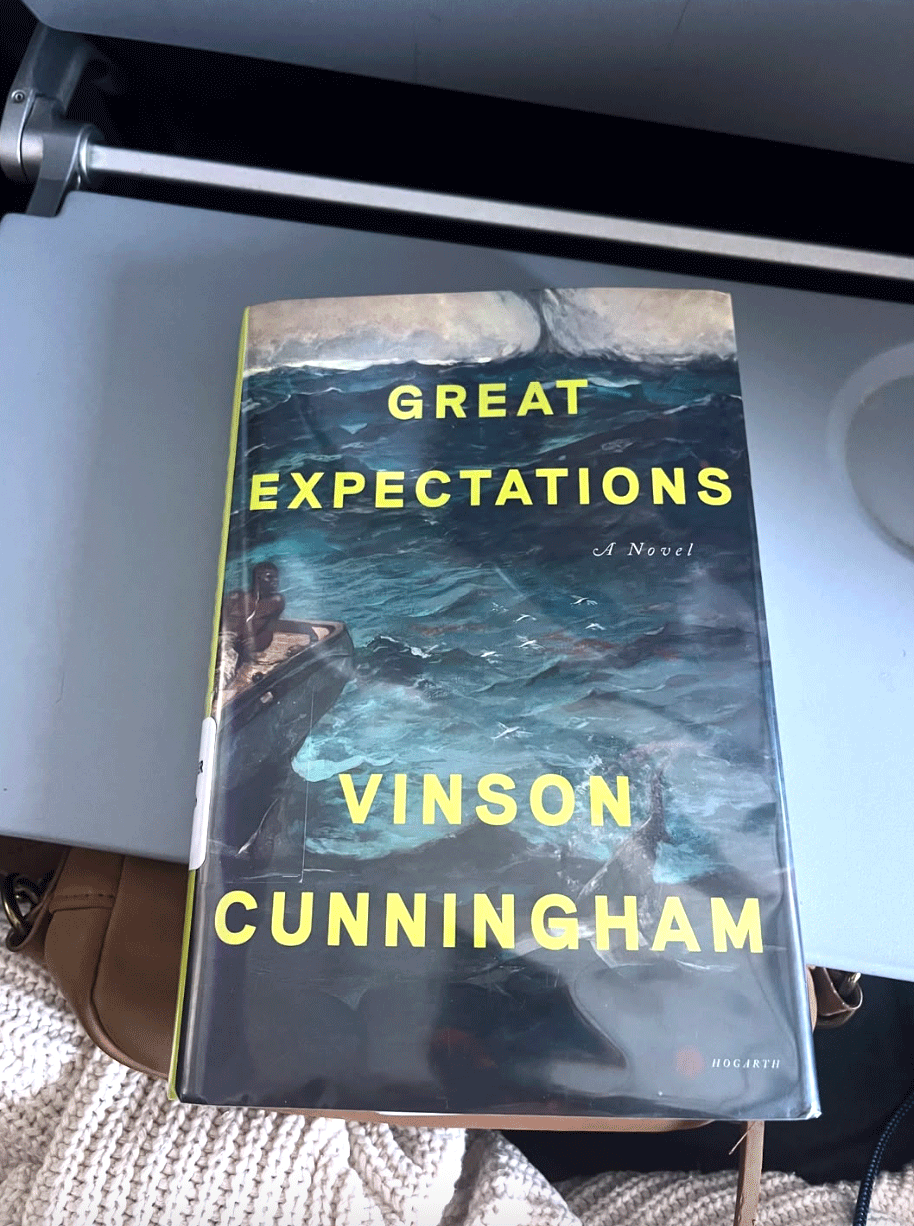Great Expectations
“It’s never good to be a fanatic,” said my teacher. I have no recollection of the context; pretty sure she was directing us in a Gilbert & Sullivan production, so maybe she didn’t want us to get fanatical about gondoliers. But for real, I will never forget how that statement ruffled my young mind because I assumed being fanatical about “good things” was a positive attribute. Of course I understand now what she was getting at: Unquestioned enthusiasm for something prevents nuance. Or, at minimum, putting all our eggs (hopes) in one narrowly defined thing can actually blind us to the expansiveness of that very thing.
So I thought about that notion while reading Great Expectations, debut novel by New Yorker writer Vinson Cunningham.
To what degree are politics and religion intertwined and to what degree are they actually one and the same? Reviews of Great Expectations tend to focus on the autobiographical nature of the book. You know: autofiction, roman à clef, Bildungsroman, a writer’s need to exhort and investigate his life and then — possibly — leave it be? David, raised in a Black Pentecostal tradition (“I was raised in an atmosphere of magic, christened into unrealism, made to feel most at home amid excruciating cognitive dissonance…”), rather serendipitously finds himself working on the campaign of The Senator, aka Obama. (Cunningham himself worked on Obama’s first campaign and was then a White House staffer during his presidency. The differences between The Senator/The Candidate and Obama are…nil.)
There’s a lot to explore here (this is a great book club pick, IMO), from the role of a parent (David becomes a father while in college), to the “Black experience” in the US, to the machinations of both politics and religion. Mostly, it’s interesting to try to decipher how and when David loses his “fanaticism” (or does he?) and where he might ultimately place his expectations…for a future, for meaning.
“If we lose, do we disappear?” David asks a fellow campaign worker (as well as a one-time girlfriend) toward the end of Great Expectations. Maybe the lesson is to place one’s expectations on something that if — or when — it expires, you still “exist.”
originally published on instagram

